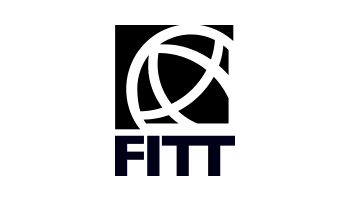CC 101 - Accounting 1
This course introduces financial accounting concepts. Students learn the double-entry accounting system, including the preparation of financial statements, closing entries, internal controls for cash and payroll accounting.
CC 102 - Accounting 2
This course is a continuation of Accounting 1 and offers further insight into the field of accounting and how it serves the needs of the business community. We take an in-depth look at some specific items on the balance sheet, accounts receivable, inventory, capital assets, and current liabilities as well as the use of special journals, subsidiary ledgers, and end with an introduction to corporations. Applications of the principles learned will be applied to the preparation of financial statements, and in-depth problems, which emphasize the importance of accounting in decision making.
CC 100 - Business Math
This is a fundamental course in business mathematics. Topics covered include mathematics of merchandising, simple interest, compound interest, annuities, loan amortization, and cost-volume-profit analysis. This course is designed to encourage students to develop mathematical skills and abilities by applying them to common business situations. Regardless of his or her prior math experiences, this course will enhance the learner's ability to use mathematics to solve problems and make sound decisions from both a career and personal perspective.
CC 130 - Operations Management 1
This course introduces the learner to the operations management profession. An operations manager is concerned with the planning, decision-making and actions required to produce and deliver the organization’s goods and/or services, as opposed to marketing its products, managing its human resources or accounting for its finances. Operations managers work in virtually all enterprises – manufacturing, service, government, for-profit and not-for-profit. Operations managers work in many parts of the organization, including Purchasing and Supply Chain, Inventory Management, Quality Management, Scheduling, Transportation and Logistics, and Front-line Supervision to name a few.
CC 131 - Operations Management 2
This second-level course continues the student’s introduction to the operations management profession and the wide variety of career paths that operations managers can pursue. Participants will continue to develop their awareness of the varied and complex roles that operations managers play in all enterprises – manufacturing, service, government, for-profit and not-for-profit. This course focuses on the analysis and decision-making that operations managers engage in as they strive for efficient, competitive production and delivery of the enterprise’s goods or services. Areas of study include process strategy, capacity planning, design of efficient facilities, and the various levels of planning needed to ensure that an organization can produce and deliver goods and services according to customer demands.
CC 141 - Marketing 1
Designed to provide the student with an overview of the marketing concept and how it can be applied to any type of organization or service. Students also learn how key marketing concepts, principles, and theories can help marketers make effective decisions. Specifically the knowledge and understanding which are needed to assess product, price, promotion and distribution options, and to make marketing mix recommendations for specific target markets.
CC 140 - Communications
This introductory communications course emphasizes the development of reading, writing, listening and speaking business communication skills at a college level. Students write for various purposes and audiences and deliver short presentations to small groups. Students research, analyze, summarize and document information. Students self and peer evaluate written documents and oral presentations. Through reading, media response and discussion exercises, students improve their communication skills. Communicating in diverse teams and across cultures is emphasized.
COMM210 - Intercultural Communication
This course prepares students to meet the challenges of intercultural business communication. Success in international business requires understanding and sensitivity in order to navigate the various differences one will encounter in a multi-cultural setting. From contrasting values and etiquette, to differences in language and non-verbal communication, students will develop the awareness and skills to transcend such differences within a multicultural environment, both international and domestic. Through assignments, readings and in-class discussion, students will gain the practical knowledge and skills for a variety of communication-based tasks, from cross-cultural negotiation to effective business correspondence.
FITT 220 - International Trade Finance
FITT課程:國際貿易金融課程著重於成功國際貿易交易所需的策略和知識。為了在國際貿易中取得成功,企業需要去優化付款方式,降低風險的策略,使用財務工具,合同和有效的現金流量管理。本課程還介紹了如何解決糾紛的方式和策略。
FITT 260 - International Sales and Marketing
FITT課程:國際銷售和行銷課程強調行銷是確保企業產品或服務,符合國際目標市場需求和利益的關鍵。儘管行銷可以創造需求,但有效的銷售策略對於從這種需求中獲利至關重要。本課程詳細介紹了企業在海外推廣和銷售產品或服務時必須考慮的因素。
FITT 265 - International Market Entry Strategies
FITT課程:國際市場進入策略課程檢視企業中個體,需要了解和採取哪些方式以確保新國際企業的成功。國際貿易從業者必須研究市場進入方案,分析這些方案,然後根據其需求選擇最有效的進入策略和合作夥伴。所選的策略必須能成功實施和管理。
FITT 270 - Global Value Chain
FITT課程:全球價值鏈課程檢視商品分銷和庫存管理的主要活動以及單據管理和採購的輔助活動,這些是國際貿易物流中不可或缺的。在國外市場開展業務需要去考慮不同的規範,財務金融,地理特徵,文化和消費者要求。
FITT 275 - Feasibility of International Trade
FITT課程:國際貿易可行性課程檢視潛在國際貿易計劃的可行性所需的關鍵步驟和決定。為了確定構思是否符合公司的策略方向並提高企業底線,都需要進行市場研究,組織準備情況分析,成本分析和風險分析。風險分析會幫助開發降低預知風險的策略。
FITT 205 - Products and Services for a Global Market
FITT課程: 在面向全球市場的產品和服務課程當中,學生將學習如何使產品和服務適應國際市場上規範,法律,文化和消費者/顧客要求的差異性。分析這些差異如何影響成本,產品設計,包裝,標籤,產品測試和服務交付,進而去制定相對的策略,這是在任何國際目標市場上取得長期成功的關鍵。
PPD 100 - Success in the Classroom
This is a first semester course that provides students with the tools they need for academic success. The course offers skills to help students with the transition to post-secondary education, to help them learn how to be a successful student and to make the most of their learning experience.
PPD 150 - Success in the Workplace
This course focuses on preparing students for the Canadian workplace, either in their future career or the work-integrated learning component of their Canadian College program. Students will examine their own career goals as well as topics such as safety, time management, and critical thinking, in order to help them transition into and succeed within a Canadian work environment.
PPD 200 - Business Computers 1
This course is the first part of an introduction to the computer skills required in business today. It provides the student with an introduction to computer file management and Microsoft Word.
PPD 250 - Business Computers 2
This course will introduce and further develop Microsoft Excel skills that the student will need use in subsequent semesters and in the business world. Upon completion of the course, students will be able to prepare tables and graphs, use input fields, understand and be able to use Microsoft Excel insert functions and specialized functions. These functions include goal seeking, solver and data analysis.
PPD 300 - Managing Stress
This course explores practical strategies for managing stress in academic, personal, and professional life. Topics include mindfulness, time management, relaxation techniques, and emotional regulation. Students will develop skills to recognize stress triggers, build resilience, and enhance well-being, fostering a balanced approach to handling everyday pressures and challenges.
PPD 350 - Managing Personal Finances
This course provides foundational knowledge and practical skills for managing personal finances. Topics include budgeting, saving, investing, debt management, and financial planning. Students will learn how to make informed financial decisions, set financial goals, and build long-term wealth, preparing them for financial independence and stability.
PPD 400 - Canadian Culture & Diversity
This course explores the rich and diverse cultural landscape of Canada, examining its history, diversity and societal values. Topics include Indigenous cultures, French and English heritage, multiculturalism, and the role of culture in shaping national identity. Students will analyze how cultural expressions reflect and influence Canadian society.
PPD 450 - Career Development
This course provides students with tools and strategies necessary for effective career development. Topics include self-assessment, career exploration, resume and cover letter writing, job search strategies, and interview techniques. Students will learn to identify their strengths and interests, research potential career paths, and create actionable plans for professional growth. By the end of the course, students will have a clear roadmap for launching and advancing their careers, equipped with the confidence and skills to succeed in a competitive job market.
CC 105 - Business Enterprise
Students learn the challenges of starting a new business. Topics include strategic approaches to small business, small business startups, funding sources, market feasibility, buying a small business and franchising. Students begin to develop skills in financial management, market management, operations, human resource management and general small business management. Preparation of a business plan is a key experiential exercise.
CC 142 - Marketing 2
This course focuses on the marketing mix, a collection of variables that marketers control and manipulate in changing market conditions. Once marketing objectives have been developed, companies must decide on specific pricing, products/services, distribution and marketing communication strategies. Students study each of these four marketing mix variables in depth and in the context of a marketing plan.
CC 230 - Human Resource Management 1
This course deals mainly with the factors that affect the overall workplace atmosphere. Topics include the strategic importance of human resource management, demographic challenges, job analysis and design, human resources planning, recruitment and selection, training and orientation, government and legal challenges, and problem-solving techniques.
CC 231 - Human Resource Management 2
This advanced course gives students an appreciation of the technical aspects of human resources. Topics include performance appraisal, compensation management, financial incentives, employee benefits and services, employee relations practices, the union/management framework, and health and safety. Students who successfully complete this course and HUMAN RESOURCE MANAGEMENT I (HRM 1200) with an average B standing receive a full credit toward the Human Resources Administration course from the Human Resources Professionals Association of Ontario.
CC 501 - Business Law
This course presents the basic legal principles of carrying out international business. It covers the legal implications of international business activities, discusses the legal aspects related to intellectual property, contract liability and responsibility, competition and antitrust laws, public trade law and legal issues related to E-commerce in international business. This is course that will bridge the gap between government systems, civil liability and profits.
CC 120 - Economics
This introductory course emphasizes macroeconomics. Topics include economic principles such as opportunity cost; the law of diminishing returns; market price setting; price elasticity; and government price controls. Students also learn about unemployment, inflation, gross domestic product, money, banking and stabilization policies.
CC 125 - e-Commerce 1
This course provides students with the fundamental principles of planning and developing a successful on-line business. It covers issues like key challenges to for IT managers, opportunity analysis and business model development.
ECOM 126 - e-Commerce 2
In this follow up to CC125, students will be introduced to the comprehensive user-centered design process to create easy to use, and user centric websites. They will learn to conduct in-depth user research & requirements gathering sessions and then be able to analyze this research data & apply this to a website strategy.
CC 502 - Speaking and Presenting
Speaking and presenting will help students in every phase of their careers from the first interview when they have to respond to questions, to the middle years when they have to represent their companies on the telephone or in face to face interactions with clients, to later in their careers when they have to make speeches in front of hundreds of people. The purpose of this course is to help the student sharpen presentation skills, both informal and formal. It will also teach techniques to build self-confidence when placed in front of a crowd.
SMM 100 - Introduction to Digital Marketing
This foundational course is designed to introduce students to digital marketing principles and tools, and how to leverage these tools in order to engage customers and create growth business growth.
FOREX 101 - Introduction to Foreign Exchange
An Introduction giving a basic understanding on how the Foreign Exchange Market works with the trading of currency pairs, using the study of various techniques and rule based structures to buy and sell currencies.
FOREX 102 - Application of Forex Trading
Taking the elements learned in FOREX 101 students are guided into applying the lessons learned into real application placing trades on a demo account. A more comprehensive detailed learning of how to become a consistently profitable currency trader.






